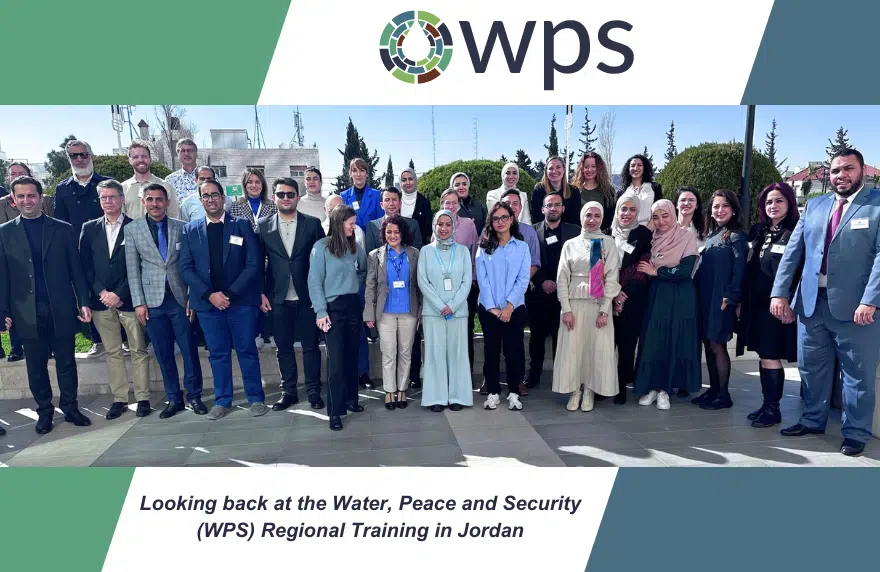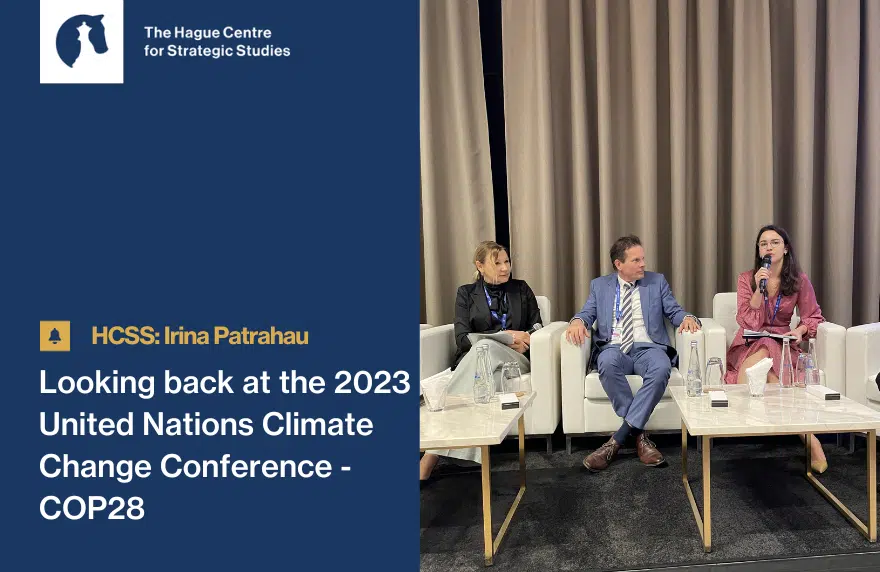On 27-28 February, HCSS strategic analysts Laura Birkman and Irina Patrahau led the first regional Water, Peace and Security (WPS) training in Amman, Jordan. The two-day training was developed to help equip governmental officials from the Middle East and North Africa, Dutch diplomats active in the region, as well as practitioners in the disaster relief and humanitarian sector, with Water, Peace, and Security (WPS) tools and methods.
“We elaborated on ways and means to break the vicious cycle of water-induced conflict in favor of options that allow water to be used as an instrument for cooperation and peace.“
HCSS senior strategic analyst Laura Birkman
The WPS tools and methods can be applied in developing conflict-sensitive, informed, and inclusive policies and programmes to prevent and mitigate water-related conflicts. The training was designed to support the Shiraka Water Management training programme, coordinated by Netherlands Enterprise Agency (RVO) and supported by the The Hague Academy for Local Governance.

“We had the opportunity to showcase the full WPS ‘toolbox’ of instruments, methods, and approaches that integrate early warning and anticipatory action to manage and mitigate water-induced conflict risk,” HCSS senior strategic analyst Laura Birkman reflected.
“I really enjoyed engaging with the diverse group of participants, ranging from government representatives, Dutch diplomats, and humanitarian officers active in over 10 countries in the region. We elaborated on ways and means to break the vicious cycle of water-induced conflict in favor of options that allow water to be used as an instrument for cooperation and peace.”
WPS was happy to host representatives of the International Federation of Red Cross and Red Crescent Societies MENA Regional Office and the Jordan Delegation, and from Netherlands embassies in the MENA region. The training was organized in collaboration with WPS consortium partners IHE Delft, Deltares, International Alert and World Resources Institute. The ambassador of the Kingdom of the Netherlands to Jordan, Harry Verweij, provided opening remarks. He highlighted the importance of collaboration in order to address water-related security challenges in the MENA region.

The training consisted of interactive sessions showcasing the integrated, informed and inclusive WPS approach (PDF) to water-related conflict prevention and mitigation. The sessions focused on understanding the water-security nexus, using the WPS Global Early Warning Tool, offering tools on how to engage in participatory action through causal loop diagrams, facilitating dialogue, and developing conflict-sensitive policies.
“From technical water management expertise to disaster relief, the training was rich in insights that will hopefully help guide participants in their day-to-day work, managing water-related security risks.”
HCSS strategic analyst Irina Patrahau
The training was conducted by several experienced WPS specialists, including Laura Birkman and Irina Patrahau from HCSS, Bouke Ottow and Nancy Haddaden from Deltares, Svenja Wolter from International Alert and Liz Saccoccia from World Resources Institute (WRI), with crucial support from Sundus Al-Ogaidi of the IHE Delft Institute for Water Education, Oscar Alvarado from The Hague Academy for Local Governance, assistant analyst Theresa Fleitz from HCSS, and the Netherlands Embassy in Jordan.

“It was a great experience sharing our WPS toolkit, hearing about the challenges water managers from the MENA region face and their innovative solutions, and meeting inspiring water managers, IFRC representatives, and diplomats,” Liz Saccoccia looked back. “Water management is complicated, but cultural sensitivity and engagement are essential to prevent water related conflict. If the Nabataean Empire could provide water services to Petra 2000 years ago, I have hope that we will take steps to address the growing water crises and ensure sustainable water management for our future.”

The training culminated with the WPS serious game, organized by HCSS strategic analyst Irina Patrahau, which encourages participants to apply learnings and discuss implications for their daily work through the use of a gamified analytical tool.
“This regional training was a remarkable opportunity to share the tools and approaches that WPS has been developing over the last years and to encourage cross-learnings not just across provinces and countries in the MENA region, but also across sectors,” HCSS strategic analyst Irina Patrahau reflected. “From technical water management expertise to disaster relief and diplomatic experiences, the training was rich in insights that will hopefully help guide participants in their day-to-day work, managing water-related security risks.”

Learn more about WPS here, and our regional work here.








